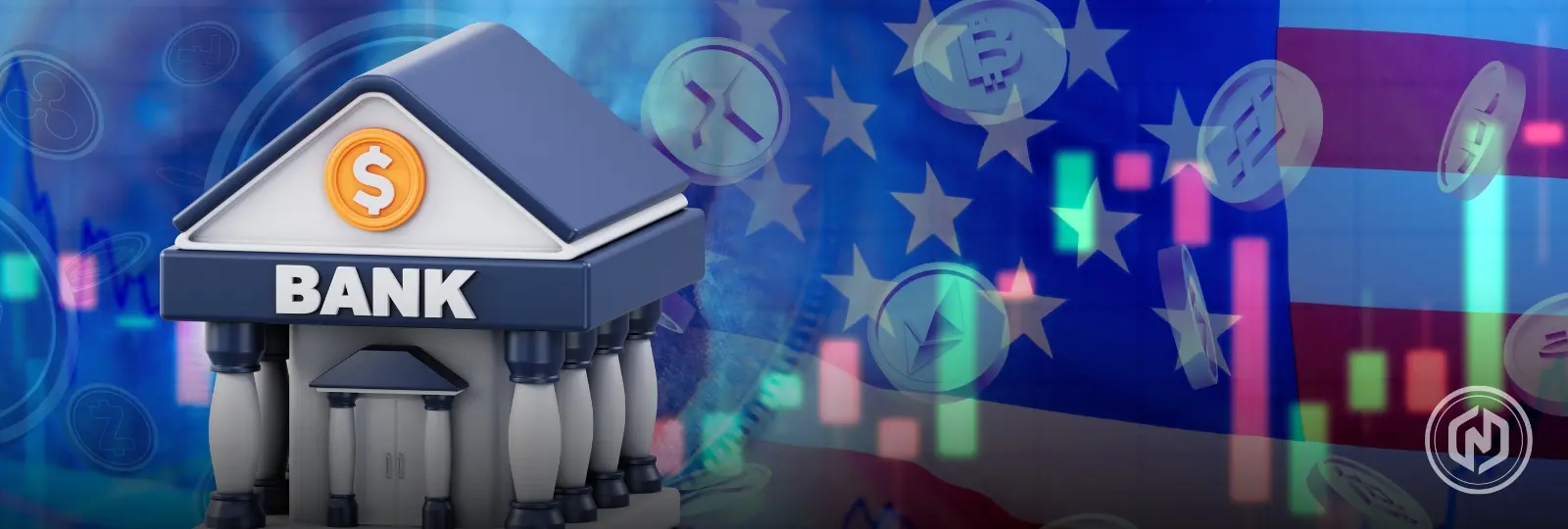US banks have received clear approval to enter crypto, following new guidance from the Office of the Comptroller of the Currency (OCC). The OCC has allowed federally regulated US banks to offer custody and trading services through approved third-party crypto providers. This regulatory shift has significant implications for the traditional finance sector and opens a new phase of institutional engagement in digital assets.
US Banks Cleared to Offer Crypto Services
On May 7, the OCC sent a letter permitting US banks to offer digital asset services through the utilization of third-party crypto platforms. The banks can now custody crypto, facilitate trade execution, provide fiat conversion, and value and report to customers. However, the OCC requires banks to develop strong internal controls and closely monitor third-party service providers.
Through this policy, US banks can also serve as custodians and hire regulated sub-custodians to service the crypto assets. The new rule eases the oversight and holds people accountable without enabling compliant access to crypto for mainstream clients. However, US banks must evaluate operational risks and establish efficient governance sets for crypto partnerships.
Further, the OCC stressed that US banks should safeguard customer funds and must not rely on unregulated digital asset firms. Internal controls should deal with technology risks, operational security, and consumer protection. These requirements illustrate the OCC’s attempt to ensure U.S. banks provide services within existing financial regulations.
Operation Chokepoint 2.0 Is Officially Over
The Guidance by OCC ends the Operation Chokepoint 2.0, which prohibited US banks from having anything to do with crypto under former policies. Due to past regulatory pressure, banking relationships with digital asset companies erred, with uncertainty in financial institutions. With such a change, US banks will be able to use brands of crypto services without being restricted by institutions.
Crypto custody services were barred for US banks during Biden’s time in office under regulatory limits and the SEC’s SAB 121 rule. That rule has just been repealed, removing the greatest obstacle to crypto participation by federally-regulated financial institutions. The new OCC stance cements a wider wave of embrace for crypto, including the banking systems.
This reversal is an iconic turn in the regulatory landscape, allowing US banks to enter strategic partnerships with compliant crypto companies. Such collaborations will facilitate greater access to digital asset services over regulated banking frameworks. Consequently, the old financial system could embrace digital assets more.
What This Means for US Banks and Crypto
The US banks have now received a regulatory green light to venture into digital assets with increased legal ratification and reduced compliance opacity. This access enables them to discover new revenue streams, gain market access, and compete with fintech companies. However, they must prioritize due diligence and risk oversight concerning all crypto-related activities.
The guidance describes the roles in handling consumer protections, asset segregation, and having audit-ready systems. Under the jurisdiction of the US federal banking laws, US banks must instill security measures and secure user data. When managed by third parties, these rules require the greatest transparency in crypto operations.


